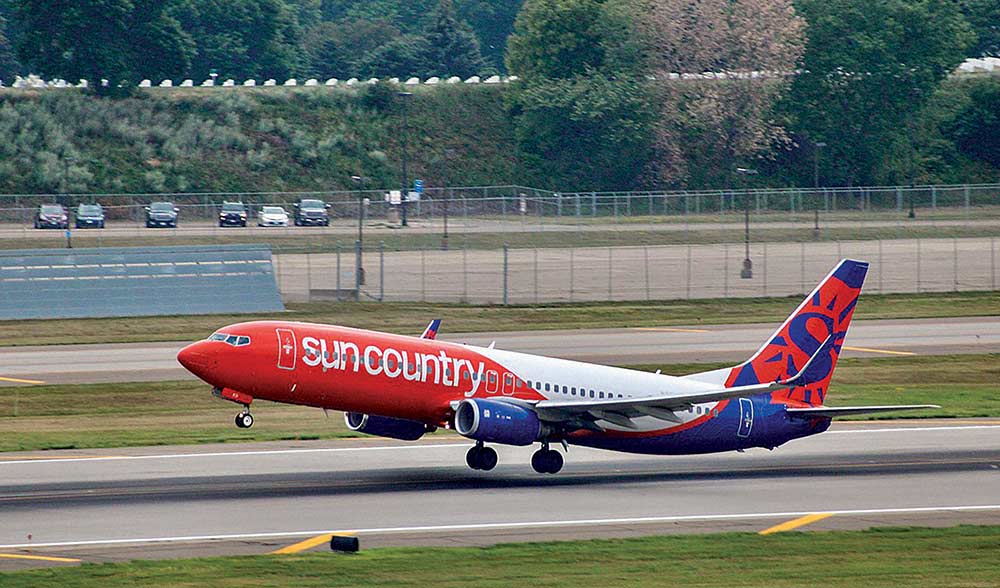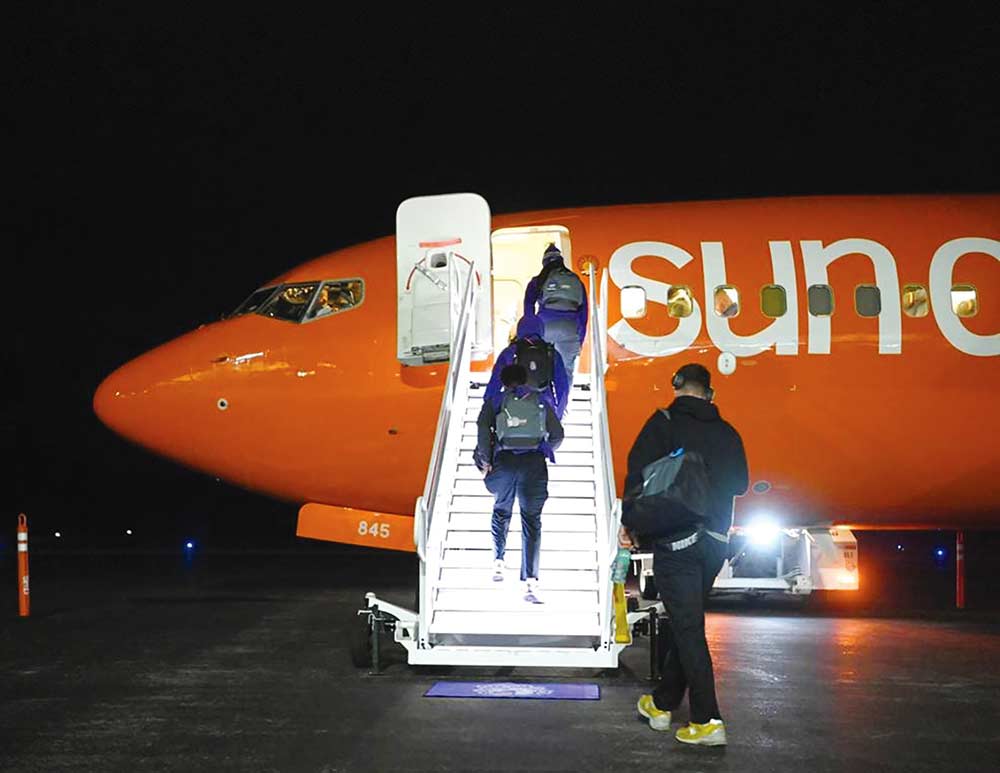Sun Country

A Sun Country B-737-800 departs Runway 12R at Minneapolis-Saint Paul International Airport. Photo: Wikimedia
At A Glance
Pilots Joined ALPA: 1996
Number of pilots: 650
Pilot base: Minneapolis-St. Paul, Minn.
Hubs/key markets: Minneapolis-St. Paul, Minn.
Headquarters: Minneapolis, Minn.
Operations: Sun Country focuses on serving leisure and visiting friends and relatives (“VFR”) passengers and charter customers and providing cargo services with scheduled service throughout the U.S. and to destinations in Mexico, Central America, Canada, and the Caribbean.
Fleet: 42 B-737-800s in passenger configuration, 12 B-737-800BCFs owned by and flown for Amazon, 5 B-737-900ERs currently on lease to Air Oman and scheduled to begin entering service for Sun Country in the fourth quarter of 2024, and 2 additional B-737-800s that had been scheduled for delivery in 2023–2024 have remained instead on lease to other airlines
As they neared the midpoint of a four-year contract last December, the pilots at Sun Country Airlines were engaged in a protracted effort to force management to actually implement and comply with the agreement that the pilot group ratified in December 2021.
That amended contract contains scheduling, pay, and work-rule improvements and marks a significant improvement in virtually every area for a pilot group that had languished behind its peers for years.
However, after a yearlong joint-implementation effort during which management refused to sign even a single clarifying letter of agreement or memorandum of understanding, the pilots’ Master Executive Council (MEC) refocused its efforts on the grievance and arbitration process to hold management accountable for contract implementation and compliance.
Many of the gains achieved in the 2021 contract went underrealized as management adopted a strategy of widespread noncompliance and refusal to implement entire negotiated contract sections, instead relying on delay tactics and forcing the MEC to fight for agreed-upon provisions through a limited number of arbitrations.
Even long-standing and well-understood provisions, such as long-term disability benefits, came under attack by management.
In addition to fighting to keep the contract its pilots earned in 2021, the MEC has continued to advocate for much-needed growth, which has been hampered by a significant lack of captain upgrades. Management has refused to address quality-of-life improvements, many of which are nonmonetary or represent cost savings, required to help the airline grow.
Management, however, has continued to pursue a regressive labor policy and has refused any substantive interim discussions, instead relying on arbitrations to attempt to claw back the hard-earned contract improvements achieved in 2021 even as other carriers continue to raise the bar to retain pilots and grow.


